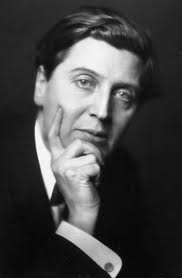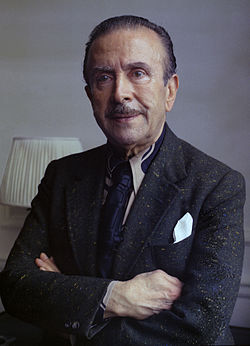This Week in Classical Music: February 6, 2023.Berg, Arrau and more. It so happened that for the last month, we’ve been preoccupied with Austro-German composers, first with the mostly Jewish, and now mostly forgotten, composers who flourished early in the 20th century, then with Mozart and Quantz.This week brings another name, which would firmly fit into the same category – that of Alban Berg, who was born in Vienna on February 9th of 1885.Fortunately, we’ve written about Berg many times, so, in addition to the recent posts, we can refer you, for example to theseentries.In the meantime, we’ll turn to performers whom we’ve neglected in our recent posts.Arthur Rubinstein and John Ogdon were born in late January, the former on the 28th in the year 1887, and the latter on the 27th, exactly 50 years later, in 1937.Rubinstein lived a wonderfully long life, almost 96 years, and performed well into his 80s (he gave his last concert in London in 1975, when he was 89). On the other hand, Ogdon’s career was brief: at the age of 36 he experienced a mental breakdown, and from that time till his death in 1989 at the age of 52, he gave just a few concerts.
Two wonderful cellists were also born in late January: Jacqueline du Pré, on the 26th in 1945, and Lynn Harrell, on the 30th in 1944.Here we have a similar story: Harrell performed till the ripe age of 76 (he died, suddenly, in 2020).The du Pré tragedy is widely known, it was portrayed in books and film: a tremendously talented musician, she was struck by multiple sclerosis in 1971, when she was only 26 (she died on 19th of October 1987 at the age of 42).Let’s listen to both cellists in the same Cello concerto by Antonin Dvořák.HereJacqueline du Pré performs the first movement of the concerto.This recording was made live in Stockholm in 1967 with the Swedish Radio Symphony Orchestra, Sergiu Celibidache conducting.And here Lynn Harrell plays the second movement.This recording was made in 1982 in London with Vladimir Ashkenazy conducting the Philharmonia Orchestra.
This week we commemorate the anniversary of the great Chilean pianist Claudio Arrau, who was born on this day in 1903. A child prodigy, he gave his first public concert at the age of five.At the age of 11, he played all of Liszt’s Transcendental Etudes; that was also the year when he gave his first concert in Berlin, where he would live and teach from 1924 to 1940.In 1935 he gave 12 concerts playing all of Bach’s keyboard compositions.In 1941 he settled in New York.He played several complete cycles of Beethoven’s sonatas, both in the US and in Europe, and continued to perform into his 80s.Arrau had an enormous repertoire.It was said that he could play 76 different recitals without repeating a single piece, not counting the piano concertos.We can think of only Sviatoslav Richter having a broader range.Considering that much of Arrau’s repertoire was recorded, it’s difficult to pick one piece to demonstrate his talent.So, we’ll give you two Beethoven sonatas: first, Piano Sonata No. 21 "Waldstein" in C major, op. 53, recorded in 1963, and then, Piano Sonata No. 17 “Tempest” in D minor, Op. 31, No. 2, recorded in 1965.The tempos are slow but the results are profound.
Berg, Arrau and more 2023
This Week in Classical Music: February 6, 2023. Berg, Arrau and more. It so happened that for the last month, we’ve been preoccupied with Austro-German composers, first with the mostly Jewish, and now mostly forgotten, composers who flourished early in the 20th century, then with Mozart and Quantz. This week brings another name, which would firmly fit into the same category – that of Alban Berg, who was born in Vienna on February 9th of 1885. Fortunately, we’ve written about Berg many times, so, in addition to the recent posts, we can refer you, for example to theseentries. In the meantime, we’ll turn to performers whom we’ve neglected in our recent posts. Arthur Rubinstein and John Ogdon were born in late January, the former on the 28th in the year 1887, and the latter on the 27th, exactly 50 years later, in 1937. Rubinstein lived a wonderfully long life, almost 96 years, and performed well into his 80s (he gave his last concert in London in 1975, when he was 89). On the other hand, Ogdon’s career was brief: at the age of 36 he experienced a mental breakdown, and from that time till his death in 1989 at the age of 52, he gave just a few concerts.
Jewish, and now mostly forgotten, composers who flourished early in the 20th century, then with Mozart and Quantz. This week brings another name, which would firmly fit into the same category – that of Alban Berg, who was born in Vienna on February 9th of 1885. Fortunately, we’ve written about Berg many times, so, in addition to the recent posts, we can refer you, for example to theseentries. In the meantime, we’ll turn to performers whom we’ve neglected in our recent posts. Arthur Rubinstein and John Ogdon were born in late January, the former on the 28th in the year 1887, and the latter on the 27th, exactly 50 years later, in 1937. Rubinstein lived a wonderfully long life, almost 96 years, and performed well into his 80s (he gave his last concert in London in 1975, when he was 89). On the other hand, Ogdon’s career was brief: at the age of 36 he experienced a mental breakdown, and from that time till his death in 1989 at the age of 52, he gave just a few concerts.
Two wonderful cellists were also born in late January: Jacqueline du Pré, on the 26th in 1945, and Lynn Harrell, on the 30th in 1944. Here we have a similar story: Harrell performed till the ripe age of 76 (he died, suddenly, in 2020). The du Pré tragedy is widely known, it was portrayed in books and film: a tremendously talented musician, she was struck by multiple sclerosis in 1971, when she was only 26 (she died on 19th of October 1987 at the age of 42). Let’s listen to both cellists in the same Cello concerto by Antonin Dvořák. Here Jacqueline du Pré performs the first movement of the concerto. This recording was made live in Stockholm in 1967 with the Swedish Radio Symphony Orchestra, Sergiu Celibidache conducting. And here Lynn Harrell plays the second movement. This recording was made in 1982 in London with Vladimir Ashkenazy conducting the Philharmonia Orchestra.
conducting the Philharmonia Orchestra.
This week we commemorate the anniversary of the great Chilean pianist Claudio Arrau, who was born on this day in 1903. A child prodigy, he gave his first public concert at the age of five. At the age of 11, he played all of Liszt’s Transcendental Etudes; that was also the year when he gave his first concert in Berlin, where he would live and teach from 1924 to 1940. In 1935 he gave 12 concerts playing all of Bach’s keyboard compositions. In 1941 he settled in New York. He played several complete cycles of Beethoven’s sonatas, both in the US and in Europe, and continued to perform into his 80s. Arrau had an enormous repertoire. It was said that he could play 76 different recitals without repeating a single piece, not counting the piano concertos. We can think of only Sviatoslav Richter having a broader range. Considering that much of Arrau’s repertoire was recorded, it’s difficult to pick one piece to demonstrate his talent. So, we’ll give you two Beethoven sonatas: first, Piano Sonata No. 21 "Waldstein" in C major, op. 53, recorded in 1963, and then, Piano Sonata No. 17 “Tempest” in D minor, Op. 31, No. 2, recorded in 1965. The tempos are slow but the results are profound.